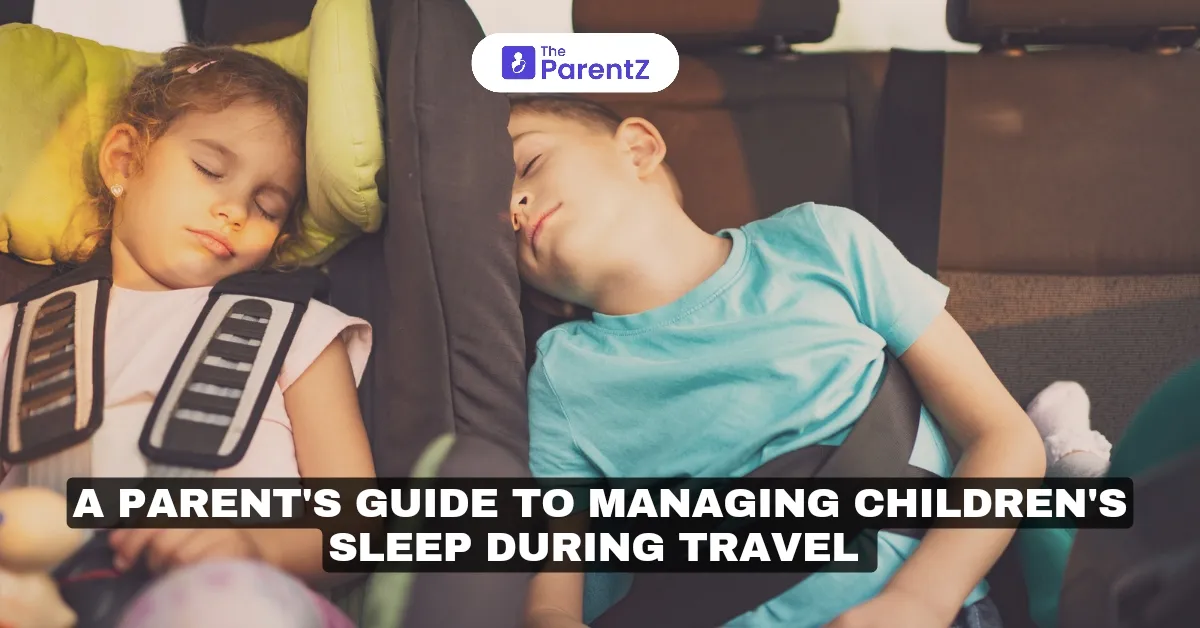Traveling with kids is a thrilling adventure, but it can also be a sleep-deprived nightmare. Jet lag, unfamiliar environments, and disrupted routines can leave your kids (and you!) feeling tired and cranky. But fear not! With a little planning and preparation, you can help your kids sleep soundly, even on the go.
Understanding Sleep Disruptions During Travel
Traveling can disrupt a child’s regular sleep routine for several reasons:
- New Environments: Sleeping in unfamiliar places can cause anxiety and discomfort for children. They may feel unsettled in a hotel room or at a relative's house, making it harder for them to fall asleep.
- Changes in Routine: Travel often means altered schedules for meals and activities, which can throw off a child's internal clock. This is especially true when crossing time zones, leading to jet lag.
- Excitement and Overstimulation: The excitement of travel can lead to overstimulation. Kids may be too excited to sleep after a day filled with new experiences and adventures.
Understanding these factors is the first step in proactively managing your child’s sleep during travel.
Strategies for Managing Sleep During Travel
Prepare Ahead of Time
Preparation makes a significant difference in how well your child sleeps while traveling. Here are some steps to take before you leave:
- Adjust Sleep Schedules Gradually: If you’re traveling across time zones, gradually adjust your child’s bedtime and wake time by 15-30 minutes each day leading up to the trip. This gradual shift can help their internal clock adapt more easily.
- Pack Familiar Items: Bring along comfort items from home, such as their favorite blanket, stuffed animal, or pajamas. Familiar smells and textures can provide comfort in new environments.
Create a Sleep-Conducive Environment
Once you arrive at your destination, setting up an optimal sleep environment is key:
- Use Blackout Curtains: If you’re staying in a hotel or rental property, light can be a significant disruptor of sleep. Bring portable blackout curtains or use aluminum foil to block out light from windows.
- Control Noise Levels: A white noise machine or app can help mask unfamiliar sounds that might disturb your child’s sleep. If that’s not available, consider using earplugs or noise-canceling headphones designed for kids.
- Maintain Comfortable Temperatures: Ensure the sleeping area is at a comfortable temperature. Bring extra layers or blankets, if necessary, as hotel rooms can sometimes be too cold or hot.
Stick to Bedtime Routines
Maintaining consistency with bedtime routines can help signal to your child that it’s time to wind down:
- Follow Familiar Rituals: Engage in familiar bedtime activities like reading, singing lullabies, or having quiet time together. This consistency helps reassure children that it’s still bedtime despite being in a new place.
- Limit Screen Time Before Bed: Encourage screen-free time at least an hour before bed to help your child wind down naturally. Instead, opt for calming activities that promote relaxation.
Manage Daytime Naps Wisely
Naps are essential for young children but can be tricky during travel:
- Plan Naps Around Travel Times: If you’re on the road or flying, try to align travel times with your child’s nap schedule. For instance, if they typically nap in the afternoon, plan long drives or flights during that time.
- Limit Nap Duration: While it might be tempting to let them nap for extended periods during travel, keep naps shorter (ideally under two hours) to ensure they’re tired enough for nighttime sleep.
Handle Jet Lag Effectively
If you’re crossing time zones, jet lag can significantly impact your child’s ability to sleep:
- Get Outside During the Day: Exposure to natural light helps reset the internal clock. Spend time outdoors after arriving at your destination to help your child adjust.
- Adjust Mealtimes: Align mealtimes with the new time zone as soon as possible. This helps regulate their internal clock and signals when it's time to eat and sleep.
Be Flexible but Firm
While it's essential to maintain routines, flexibility is also important during travel:
- Communicate Expectations: Talk with your child about what to expect during the trip and reassure them that it’s okay if things don’t go exactly as planned.
- Allow for Extra Comfort: If your child is feeling anxious or unsettled at night, it’s okay to offer extra cuddles or stay with them until they fall asleep. However, encourage them to settle down independently whenever possible.
Conclusion
Managing sleep during travel requires thoughtful planning and flexibility from parents. By preparing ahead of time, creating a conducive sleeping environment, sticking to familiar routines, managing naps wisely, addressing jet lag effectively, and allowing for some flexibility, you can help ensure that both you and your children enjoy a restful journey. Stay attuned to your child’s needs and adjust strategies as necessary—after all, happy travels are all about balance!








Be the first one to comment on this story.